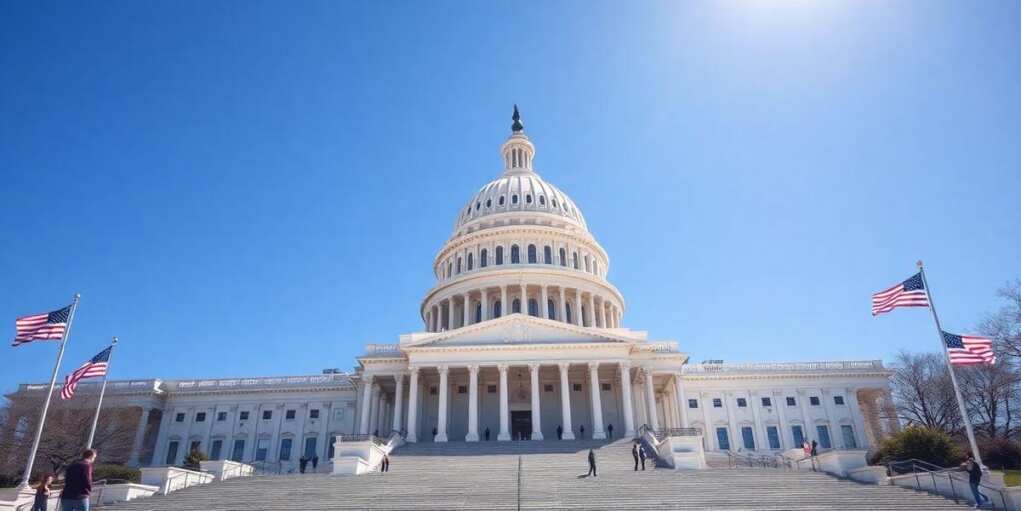Washington In Chaos After Epstein Files Act Passes

The House of Representatives passed the Epstein Files Transparency Act in a stunning 427-1 vote this week, clearing a major step toward releasing documents about Jeffrey Epstein’s connections to the rich and powerful.
Republican Kentucky Representative Thomas Massie authored the bill.
The legislation to release the Jeffrey Epstein files overcame a huge obstacle last week when its discharge petition passed the critical 218 signature threshold. This allowed it to move forward to a floor vote. Democratic Arizona Representative Adelita Grijalva provided the final signature shortly after being sworn in, ensuring the measure would advance.
With the House vote now complete, the bill moves to the Senate next.
The legislation recently received President Trump’s endorsement and has gained support from both parties. The House passage also marks a major shift from Trump, who spent months criticizing Massie’s proposal before suddenly reversing course over the weekend.
Trump urged House Republicans to support releasing records related to Epstein.
“As I said on Friday night aboard Air Force One to the Fake News Media, House Republicans should vote to release the Epstein files, because we have nothing to hide, and it’s time to move on from this Democrat Hoax perpetrated by Radical Left Lunatics in order to deflect from the Great Success of the Republican Party, including our recent Victory on the Democrat ‘Shutdown.'”
Only one member of Congress voted against the bill. Republican Louisiana Representative Clay Higgins cast the sole no vote and explained his reasoning in detail.
Higgins argued the bill abandons 250 years of criminal justice procedure in America and would reveal and injure thousands of innocent people including witnesses, people who provided alibis, and family members.
He warned that releasing investigative files to a rabid media would result in innocent people being harmed. Higgins said he would support the legislation if the Senate amends it to properly address the privacy of victims and other Americans who are named but not criminally implicated.
President Trump said on Friday he will direct the Department of Justice to investigate Epstein’s ties to former President Bill Clinton and several major financial institutions. This announcement came after the president accused Democrats of weaponizing newly released emails from the Epstein estate, calling the messages a politically motivated hoax.
Under Massie’s bill, Attorney General Pam Bondi would have 30 days after the law takes effect to make all unclassified Department of Justice records publicly accessible in a searchable and downloadable format. This includes records from the Federal Bureau of Investigation and U.S. Attorneys’ Offices.
The bill gives Bondi authority to withhold or redact certain sensitive material.
She can block material involving child sexual abuse material, physical abuse, or death. She can also redact personal information of alleged victims and any information that could compromise ongoing investigations, prosecutions, national security, or foreign policy.
Massie and Democratic California Representative Ro Khanna introduced the discharge resolution back in July. If passed, it would require the release of all unclassified Epstein records to the House Rules Committee.
Of the 218 signatures on the petition, only four came from Republicans. Those four were Massie, Colorado Representative Lauren Boebert, South Carolina Representative Nancy Mace, and Georgia Representative Marjorie Taylor Greene. In contrast, 214 House Democrats signed on to support the measure.
The effort had stalled in recent weeks because of the lack of broader Republican support in the House.
The lopsided vote total shows how much political pressure built up around this issue. Lawmakers from both parties felt they could not afford to be seen as protecting powerful people connected to Epstein by voting against transparency.
The Senate will now take up the legislation. If it passes there and gets signed into law, Americans will finally get access to government files that have been kept secret for years about Epstein’s network of connections.
Many people believe these files will reveal uncomfortable truths about politicians, business leaders, and celebrities who associated with Epstein. The convicted sex offender had relationships with some of the most powerful people in the world before his death in federal custody.
Critics of the bill worry that releasing investigative files could harm innocent people whose names appear in documents simply because they were interviewed as witnesses or had some peripheral connection to the case. Supporters argue the public has a right to know the full scope of Epstein’s activities and who may have enabled or participated in his crimes.
The 427-1 vote represents one of the most lopsided tallies in recent congressional history and demonstrates the intense public interest in learning more about the Epstein case and his powerful associates.








